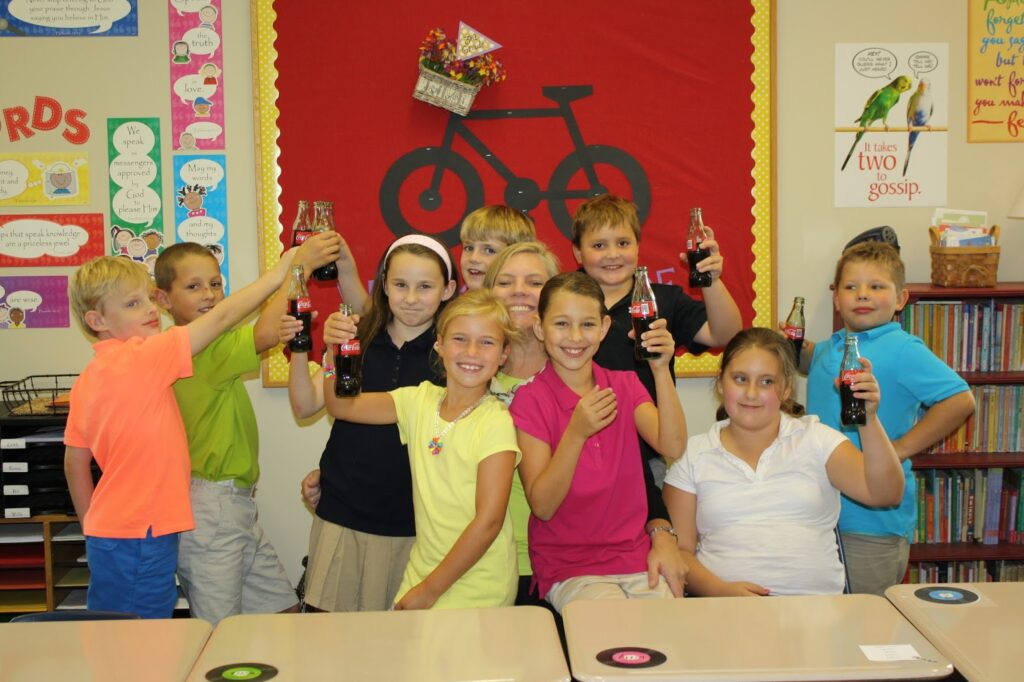
Decoding the 3rd Grader Age: Milestones, Development, and What to Expect
The 3rd grader age is a pivotal time in a child’s development. As children transition from the concrete thinking of early childhood to more abstract thought processes, understanding the milestones and expectations for this age group becomes crucial for parents, educators, and caregivers. This article delves into the various aspects of a 3rd grader’s life, including academic, social-emotional, and physical development, providing a comprehensive guide to navigating this exciting stage.
Academic Development in the 3rd Grade
The 3rd grade curriculum generally focuses on building foundational skills in reading, writing, and mathematics. Reading comprehension becomes increasingly important, with students expected to analyze texts, identify main ideas, and draw inferences. Writing skills are honed through various exercises, including narrative writing, informative essays, and persuasive arguments. In mathematics, 3rd graders typically learn multiplication and division, fractions, and more complex problem-solving strategies. The 3rd grader age is a critical time for solidifying these fundamental academic abilities.
Reading and Language Arts
At the 3rd grader age, children are expected to read independently and fluently. They should be able to understand different genres of literature, including fiction, non-fiction, and poetry. Vocabulary development is also a key focus, with students learning new words and phrases through reading and direct instruction. Writing assignments often include creative stories, research reports, and opinion pieces. Spelling and grammar skills are also reinforced during this year. Many schools implement reading programs designed to increase comprehension and foster a love of reading. [See also: Best Books for 3rd Graders]
Mathematics
Mathematics in the 3rd grade introduces more complex concepts. Students learn multiplication and division facts, and begin to apply these skills to solve real-world problems. Fractions are introduced as parts of a whole, and students learn to compare and order fractions. Geometry concepts, such as identifying shapes and measuring angles, are also explored. Problem-solving skills are developed through word problems and hands-on activities. The 3rd grader age is a time when mathematical foundations are reinforced, preparing students for more advanced concepts in later grades.
Science and Social Studies
Science and social studies curricula in the 3rd grade often vary depending on the school district and state standards. However, common topics include life science (plants, animals, ecosystems), earth science (weather, rocks, minerals), and physical science (matter, energy). Social studies topics may include local history, geography, and civics. Hands-on activities, experiments, and field trips are often incorporated to enhance learning. These subjects help 3rd graders develop critical thinking skills and a broader understanding of the world around them.
Social-Emotional Development of a 3rd Grader
The 3rd grader age is a time of significant social and emotional growth. Children at this age are becoming more aware of themselves and their relationships with others. They are developing greater independence and responsibility, and are beginning to understand the importance of cooperation and teamwork. Peer relationships become increasingly important, and children may experience peer pressure and social challenges. Understanding these social-emotional aspects of development is essential for supporting 3rd graders as they navigate this stage.
Developing Independence and Responsibility
As children reach the 3rd grade, they are expected to take on more responsibilities at home and at school. This may include completing chores, managing homework assignments, and participating in extracurricular activities. Developing independence is crucial for building self-confidence and self-esteem. Parents and teachers can support this process by providing opportunities for children to make choices and take ownership of their actions. The 3rd grader age is a time to foster these important life skills.
Peer Relationships and Social Skills
Peer relationships become increasingly important during the 3rd grader age. Children are more aware of social dynamics and are eager to fit in with their peers. They may experience peer pressure to conform to certain behaviors or attitudes. Developing strong social skills, such as communication, empathy, and conflict resolution, is essential for navigating these social challenges. Parents and teachers can help children develop these skills by providing opportunities for social interaction and by modeling positive social behaviors. Helping children navigate the complexities of peer interactions at this stage is crucial for their overall well-being. Understanding what to expect from a child’s social development at the 3rd grader age can help parents better support their kids.
Emotional Regulation and Self-Awareness
Emotional regulation refers to the ability to manage and control one’s emotions. At the 3rd grader age, children are learning to identify and express their emotions in healthy ways. They are also developing strategies for coping with stress and frustration. Self-awareness is the ability to understand one’s own thoughts, feelings, and behaviors. Developing self-awareness is crucial for building self-esteem and making responsible decisions. Parents and teachers can support emotional regulation and self-awareness by providing a safe and supportive environment where children feel comfortable expressing their emotions. Talking to children about their feelings and helping them develop coping strategies can be extremely beneficial during this developmental stage. It’s important to know that the 3rd grader age often brings on new emotional challenges.
Physical Development of a 3rd Grader
While physical development may not be as dramatic as in earlier years, the 3rd grader age is still a time of significant physical growth and development. Children are becoming more coordinated and agile, and are developing greater strength and endurance. Fine motor skills are also improving, allowing children to perform more complex tasks, such as writing and drawing. Encouraging physical activity and healthy eating habits is essential for supporting physical development at this age.
Gross Motor Skills
Gross motor skills involve the large muscles of the body and are used for activities such as running, jumping, and throwing. At the 3rd grader age, children are becoming more proficient in these skills. They are able to run faster, jump higher, and throw farther. Participating in sports and other physical activities can help children further develop their gross motor skills. Regular exercise and outdoor play are crucial for maintaining physical health and well-being. Ensuring a child gets adequate physical activity during the 3rd grader age is essential.
Fine Motor Skills
Fine motor skills involve the small muscles of the hands and fingers and are used for activities such as writing, drawing, and buttoning clothes. At the 3rd grader age, children are developing greater dexterity and precision in their fine motor skills. They are able to write more legibly, draw more detailed pictures, and perform more complex tasks with their hands. Activities such as playing with building blocks, doing puzzles, and creating art projects can help children further develop their fine motor skills. The development of these skills is crucial for academic success and everyday tasks. The 3rd grader age is an important period for honing these fine motor skills.
Health and Nutrition
Maintaining a healthy diet and getting regular exercise are essential for supporting physical development at the 3rd grader age. Children need a balanced diet that includes plenty of fruits, vegetables, whole grains, and lean protein. They also need to get at least 60 minutes of physical activity each day. Parents can encourage healthy habits by providing nutritious meals and snacks, and by making physical activity a part of the family routine. Educating children about the importance of healthy eating and exercise can help them develop lifelong habits that promote health and well-being. It’s important to understand that the 3rd grader age requires a focus on proper health and nutrition.
Challenges and Considerations for 3rd Graders
While the 3rd grader age is a time of exciting growth and development, it can also present certain challenges. Academic pressures, social challenges, and emotional struggles are common during this stage. Understanding these challenges and providing appropriate support can help 3rd graders navigate this stage successfully.
Academic Pressures
As academic expectations increase in the 3rd grade, some children may experience academic pressure. They may feel overwhelmed by the amount of homework, tests, and projects. It is important for parents and teachers to provide support and encouragement, and to help children develop effective study habits. Creating a supportive learning environment and focusing on effort and progress, rather than solely on grades, can help alleviate academic pressure. Recognizing that the 3rd grader age can bring academic pressures is essential for supporting children.
Social Challenges
Peer relationships can be a source of both joy and stress for 3rd graders. Social challenges such as bullying, exclusion, and peer pressure are common during this stage. Parents and teachers can help children navigate these challenges by teaching them social skills, promoting empathy and understanding, and addressing bullying behaviors. Creating a positive and inclusive classroom environment can also help reduce social challenges. The social landscape of the 3rd grader age can be complex.
Emotional Struggles
Emotional struggles such as anxiety, sadness, and anger are not uncommon during the 3rd grader age. Children may experience these emotions due to academic pressures, social challenges, or other life stressors. It is important for parents and teachers to provide a supportive and understanding environment, and to help children develop healthy coping strategies. Talking to children about their feelings, teaching them relaxation techniques, and seeking professional help when necessary can help address emotional struggles. It’s crucial to acknowledge that the 3rd grader age can sometimes bring emotional difficulties.
Supporting Your 3rd Grader
Supporting a 3rd grader involves understanding their developmental needs and providing appropriate guidance and encouragement. Parents, teachers, and caregivers can play a crucial role in helping 3rd graders thrive academically, socially, emotionally, and physically.
Communication and Collaboration
Open communication between parents, teachers, and children is essential for supporting a 3rd grader. Parents should communicate regularly with teachers to stay informed about their child’s academic progress and any challenges they may be facing. Teachers should communicate with parents to share insights about the child’s behavior and learning style. Children should be encouraged to communicate their thoughts and feelings to both parents and teachers. Collaborative efforts between parents and teachers can create a supportive and consistent learning environment. Keeping the lines of communication open during the 3rd grader age is key.
Creating a Supportive Environment
Creating a supportive environment at home and at school is crucial for helping 3rd graders thrive. This includes providing a safe and nurturing space where children feel comfortable expressing their emotions, making mistakes, and taking risks. It also involves setting clear expectations and boundaries, providing positive reinforcement, and celebrating successes. A supportive environment can foster self-confidence, resilience, and a love of learning. Ensuring a supportive environment during the 3rd grader age can make a significant difference.
Encouraging Interests and Talents
Encouraging children to explore their interests and talents is essential for fostering their self-esteem and motivation. This may involve participating in extracurricular activities, pursuing hobbies, or engaging in creative projects. Parents and teachers can support this process by providing opportunities for exploration, offering encouragement and feedback, and celebrating achievements. Nurturing a child’s passions during the 3rd grader age can lead to lifelong interests and skills. [See also: Extracurricular Activities for Elementary Students]
Conclusion
The 3rd grader age is a significant milestone in a child’s development. Understanding the academic, social-emotional, and physical aspects of this stage can help parents, educators, and caregivers provide appropriate support and guidance. By fostering independence, promoting social skills, encouraging emotional regulation, and supporting physical health, we can help 3rd graders thrive and reach their full potential. The journey through the 3rd grader age is one of growth, discovery, and preparation for the challenges and opportunities that lie ahead.

